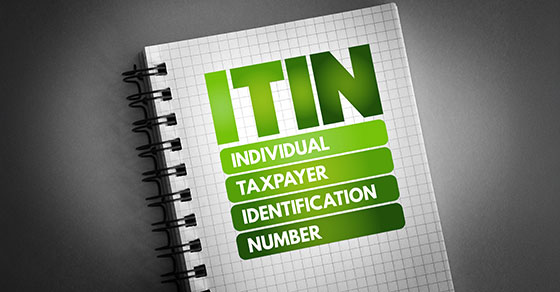Building Success While Navigating the Tax Terrain: Equipment Depreciation and Project Expenses
The construction industry is a realm of builders, developers, and contractors dedicated to creating infrastructure and spaces. Amidst the blueprints and heavy machinery, there’s a complex landscape of tax implications that construction companies must navigate. In this article, we’ll explore the specific tax considerations that construction businesses encounter, focusing on equipment depreciation and managing project expenses.
The Robust World of Construction
A Thriving Industry
The construction industry is a vital part of the global economy. It accounts for over 6% of global GDP and employs over 70 million people worldwide. In the United States, the construction industry accounts for over 4% of GDP and employs over 7 million people.
The construction industry is essential to the development and maintenance of infrastructure, such as roads, bridges, airports, and power grids. It also plays a major role in the construction of commercial and residential buildings.
Diverse Players
The construction industry is made up of a wide range of businesses, including:
- Contractors: General contractors and specialty contractors manage and oversee construction projects.
- Real estate developers: Real estate developers acquire land, secure financing, and plan and oversee the development of commercial and residential properties.
- Architects: Architects design buildings and other structures.
- Engineers: Engineers design and oversee the construction of bridges, roads, and other infrastructure projects.
- Subcontractors: Subcontractors perform specialized tasks on construction projects, such as electrical work, plumbing, and HVAC installation.
- Suppliers: Suppliers provide construction companies with materials and equipment.
Tax Considerations for Construction Equipment
Depreciation Rules
Construction companies can depreciate the cost of their equipment over time, which reduces their taxable income. The tax benefits of equipment depreciation can be significant, especially for businesses that invest in a lot of equipment.
There are two main types of depreciation deductions that construction companies can claim:
- Straight-line depreciation: This is the most common type of depreciation deduction. It allows businesses to deduct an equal portion of the cost of their equipment each year over the equipment’s useful life.
- Accelerated depreciation: This type of depreciation deduction allows businesses to deduct a larger portion of the cost of their equipment in the early years of the equipment’s useful life.
Section 179
Section 179 of the Internal Revenue Code allows businesses to deduct the full cost of certain equipment purchases in the year the equipment is purchased. This can be a valuable tax deduction for construction companies that are purchasing new equipment.
Bonus Depreciation
Bonus depreciation is a temporary tax provision that allows businesses to deduct an additional percentage of the cost of certain equipment purchases in the year the equipment is purchased. This tax deduction can help construction companies reduce their taxable income and save money on their taxes.
Balancing Act
Construction companies must balance the tax benefits of equipment depreciation with the need to keep their equipment up to date. Older equipment may be less efficient and more prone to breakdowns, which can lead to higher costs and lost productivity.
Leasing vs. Owning
Construction companies can either lease or purchase their equipment. Leasing can be a good option for construction companies that want to avoid the upfront costs of purchasing equipment and that want to have the flexibility to upgrade their equipment regularly. However, leasing can be more expensive in the long run than purchasing equipment.
Project Expense Management
Tracking Costs
It is important for construction companies to meticulously track the costs of each project. This will help construction companies to identify and control costs, and to ensure that they are deducting all allowable expenses from their taxable income.
Direct vs. Indirect Costs
Direct costs are costs that are directly related to a specific construction project, such as labor costs and material costs. Indirect costs are costs that are not directly related to a specific construction project, such as office expenses and general and administrative expenses.
Construction companies can deduct both direct and indirect costs from their taxable income. However, there are special rules for deducting indirect costs.
State Tax Considerations
State taxes can have a significant impact on construction project expenses. Construction companies should be aware of the state taxes that apply to their business and their projects.
Tax Implications
Construction companies that hire subcontractors must consider the tax implications of these relationships. They are generally responsible for withholding taxes from subcontractor payments. Companies should also be aware of the tax implications of classifying subcontractors as independent contractors.
Worker Classification
It is important for construction companies to correctly classify subcontractors as independent contractors or employees. Misclassifying subcontractors can have serious tax consequences for construction companies.
Maximizing Tax Deductions
R&D Tax Credits
Construction companies may be eligible for research and development (R&D) tax credits. R&D tax credits are tax credits that are available to businesses that are developing new or improved products or processes.
Construction companies may be eligible for R&D tax credits for activities such as:
- Developing new construction methods
- Developing new building materials
- Improving the energy efficiency of buildings
- Reducing the environmental impact of construction activities
- Employee Benefits
Construction companies can deduct the cost of certain employee benefits, such as health insurance and retirement contributions.
Challenges and Pitfalls
Construction companies face several tax challenges, including:
- Changing tax laws and regulations: Tax laws and regulations can change frequently, which can pose a challenge for construction businesses. Construction companies should stay informed of the latest tax changes to ensure that they are complying with all applicable laws and regulations.
- Accounting complexity: Construction accounting can be complex, and construction companies need to have a good understanding of construction accounting principles. Construction companies should consult with a tax professional to develop a tailored tax plan and to ensure that they are complying with all applicable tax laws and regulations.
Changing Regulations
Tax laws and regulations can change frequently, which can pose a challenge for construction businesses. Construction companies should stay informed of the latest tax changes to ensure that they are complying with all applicable laws and regulations.
Accounting Complexity
Construction accounting can be complex, and companies need to have a good understanding of construction accounting principles. Companies should consult with a tax professional to develop a tailored tax plan and to ensure that they are complying with all applicable tax laws and regulations.
Strategies for Tax Success
Professional Guidance
Construction companies should work with tax professionals who understand the industry. Tax professionals can help to identify and take advantage of all available tax benefits, and to ensure that they are complying with all applicable tax laws and regulations. So, utilize marketplaces like IfindTaxPro where you can post your project and find the right tax specialist for you.
Advanced Software
Construction companies should consider using specialized accounting and project management software. This software can help construction companies to track their costs and to comply with tax laws and regulations. Specialized accounting and project management software can also help construction companies to identify and control costs, and to improve efficiency.
Building Success in Construction
Construction companies that effectively manage their taxes and that take advantage of all available tax credits and deductions are more likely to be successful in the long run. By reducing their tax liability, construction companies can free up more resources to invest in their businesses and grow their operations.
Real-Life Examples
Here are a few stories of construction companies that have effectively managed their taxes while growing their businesses:
At Company A: By utilizing Section 179 depreciation deductions and implementing a new tax planning strategy, this construction company was able to reduce its tax liability by over $100,000.
In Company B: By investing in specialized accounting and project management software, they were able to save over $20,000 on taxes.
Whereas Company C: After working with a tax professional to develop a tailored tax plan, the company was able to grow its business by 20%.
Infrastructure and the Economy
The construction industry plays a vital role in driving economic growth. The construction industry provides jobs, generates revenue, and contributes to the development of infrastructure and communities.
When construction companies effectively manage their taxes, they can invest more in their businesses and create more jobs. This helps to stimulate the economy and to improve the quality of life for everyone.
Here are some additional tips to build success:
Focus on customer satisfaction.
Construction companies that focus on customer satisfaction are more likely to be successful in the long run. Customer satisfaction can lead to repeat business and positive referrals.
Invest in your employees.
Construction companies should invest in training and development programs for their employees. This will help to improve employee morale and productivity, and it will also help construction companies to attract and retain top talent.
Use technology to your advantage.
Construction companies can use technology to improve efficiency and reduce costs. For example, construction companies can use project management software to track costs and to keep projects on schedule.
Give back to your community.
Construction companies can give back to their communities by sponsoring local events or by donating to charitable organizations. This helps to build goodwill and to create a positive image for the company.
In the construction industry, every project is a masterpiece of design, engineering, and teamwork. To keep the wheels turning, businesses must also master the art of tax planning. By understanding equipment depreciation, project expense management, and other tax considerations, companies can build a strong foundation for success in a demanding and dynamic industry.








